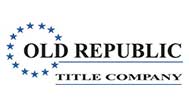Some real estate investors wonder whether they can use a 1031 exchange in Florida for a primary residence. In this article, you will find the answer to that question. Read on to learn what you need to know about Section 1031 of the internal revenue code.
What is a 1031 Exchange?
Real estate owners can benefit from several sections of the internal revenue code. One of these is Section 1031, which allows a real estate investor to sell a property to reinvest the proceeds in a new property and defer all capital gain taxes. Under the Florida 1031 exchange law, the owners of properties held for investment or used in business can exchange properties tax-free for “like-kind” properties. Qualifying “like-kind” properties include rental houses, apartments, office buildings, retail properties, and any other type of commercial real estate.
The 1031 exchange has many advantages. The first, of course, is deferred taxes, as long as the real estate owner gets no money from the sale. Using a 1031 exchange can also make it far easier for real estate investors to upgrade to larger, more profitable properties, allowing them to expand without spending a lot of money. This strategy can help investors diversify their property portfolio as well as find properties that are easier to manage than the ones they have.
Can I Use a 1031 Exchange in Florida for a Primary Residence?
The IRS normally does not allow investors to use a 1031 exchange in Florida for a primary residence because it is not commercial property. There is, however, a way to do this under certain conditions. Florida real estate investors can use a special exclusion under Section 121 of the internal revenue code. Section 121 essentially states that a personal residence can be exempt from capital gain tax through a 1031 exchange so long as the owner has owned the property for at least five years and lived in it for at least two of those five years.
However, if you intend to use a 1031 exchange in Florida for a primary residence, you will need to institute a strategy. You must have used your primary residence as a rental property for at least two years before you make the decision to sell it, and you must be able to show that you are no longer living in the property. This means proving that you are no longer using the property in question as a primary residence and that you are currently using it as a business property. In other words, you cannot be occupying the home if you want to take advantage of the 1031 exchange.
One important point to emphasize is that you must be able to prove to the IRS that you rented out the home at market rate and that you lived elsewhere.
Are You Looking To Use a 1031 Exchange in Florida? Work with Marina Title
Florida 1031 exchanges are made for investors who would like to keep investing in real estate without paying the high taxes associated with the sale of properties. If you are either buying or selling real estate in Florida, Marina Title can walk you through the process of how the Florida 1031 tax exchange works and how you can take advantage of it. Call us today at (855) 513-5880 or send us an email to Info@MarinaTitle.com to schedule an initial consultation with trained Florida real estate experts. If you are looking to use a 1031 Exchange in Florida for a primary residence, we can help you understand the laws that apply.














